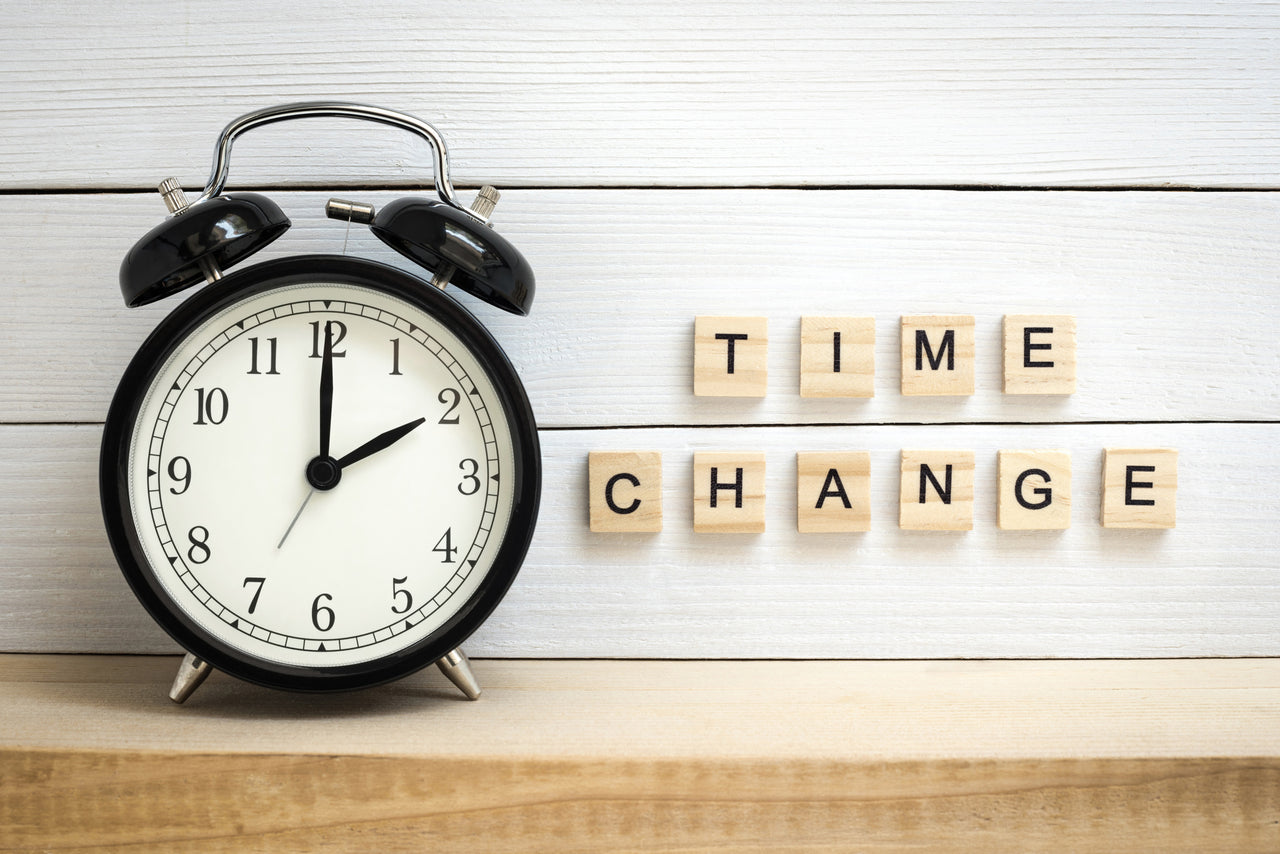10 Tips for Adjusting to Daylight Savings Time

Yesterday, Sunday, March 8th, kicked off daylight savings causing the time to spring forward and giving us a whole extra hour of daylight that most of us will be celebrating! Anyone else looking forward to those gorgeous long summer nights?
However, it also means we lost an hour of precious sleep time, and during these first few days our bodies will be adjusting to daylight savings time.
As the clocks spring forward, it may seem insignificant that we lose an hour’s sleep just one night of the year. But, we don’t react as well to the clocks going forward because we’re asking our bodies to go to sleep an hour earlier.
Remember that sleep is vital to us all, with 39% of American women and 25% of American men reporting they get too little sleep.
So, keep reading if you’d like a few tips on how to adjust to daylight savings time, so you don't miss out on all the valuable sleeping time you need.
-
Be Prepared
At the start of the time change, try getting up earlier to help you fall asleep sooner. This will help to balance your sleeping patterns to ease the overall transition.
-
Understand Your Sleep Needs
We all need varying amounts of sleep to feel fully rested, so respect the amount of sleep you need and ensure you make enough time for rest. If necessary, don’t set your alarm on the weekends.
-
Exercise and Relaxation
This should be part of our daily routine, or at least 150 minutes a week. The best time to exercise is in the mornings, with relaxation set aside for the evenings. If you can’t leave the office or your home, walk around where you are.
-
Food and Drink
Tea, coffee, alcohol and some medicines contain caffeine, which is a stimulant and can stop you from getting a great night’s rest. Try to avoid them four to six hours before bedtime.
Remember, tobacco is also a stimulant, and if you smoke, try not to before sleep time and, of course, say no to that extra glass of wine at bedtime!
-
Start Your Day With Protein
When we don’t get sufficient sleep, our bodies want to eat more, especially carbohydrates and sugar. Try eating a protein breakfast for more energy instead, such as baked, scrambled or poached eggs, mushrooms, or oats with blueberries.
-
Eat Light at Night
You’ll get a better night’s sleep if your stomach isn’t full of heavy and fatty foods. So, try to have a light and simple evening meal and avoid spicy food.
If you’re still hungry before bed, have a light snack that’s easy to digest, such as dairy, a small banana, or a bowl of oats. Avoid nocturnal toilet trips by drinking fewer fluids before bedtime.
-
Be Smart About Your Electronics
We all want to stay connected to the world. Yet the impact of using electronics such as mobiles, tablets, video games, TV, and computers before bedtime is well documented.
One of the prime concerns is that the blue light emitted from devices disrupts natural sleep cycles, making it hard for us to go to sleep. Before you and your kids settle down for the night, turn off or remove electronics from your bedroom.
-
Just Relax
There’s a Spanish proverb that says: “How beautiful it is to do nothing, and then to rest afterward.” Apply this to your evening downtime before bedtime. If you’re stressed and worried, your body produces cortisol, which is a stress hormone AND makes you more alert.
To avoid this, try these tips for aiding relaxation before bedtime:
- Have a warm bath
- Read a book
- Avoid intense TV shows and conversations
- Write a to-do list for the next day, so you’re not kept awake by anxiety
- Don’t work late into the night. Go to bed early and wake early instead.
You get the idea.
-
Make Your Bedroom Sleep-Friendly
Here’s the thing: bedrooms are for, rest, relaxation and sleep. If you struggle to get to sleep, invest in some good quality blackout shades or curtains, a comfy mattress, earplugs, and maybe even listen to some white noise.
Your bedroom temperature should be around 65-70 degrees Fahrenheit, so be sure you've set the thermostat before snuggling down for the night.
-
Take a Break
If you’ve followed all the above tips and the clocks, have sprung forward and you’re still feeling a little tired, then give yourself a break! Take an afternoon nap early in the week for 20-30 minutes to catch up on any sleep that you missed out on.
A good time might be after you’ve taken a post-lunch stroll, for example. It’s another way of adjusting to daylight savings time. Just make sure you don’t nap too close to bedtime.
Start Adjusting to Daylight Savings Time
Adjusting to daylight savings time can be tougher on our bodies than we realize. If you follow our top 10 tips, you will hopefully not feel tired and like you missed out on all-important rest time.
Your body’s natural body clock will adjust on its own in a few days. But in the meantime, make it easier for you and your family by following these tips. For more info on this, please feel free to message us!




